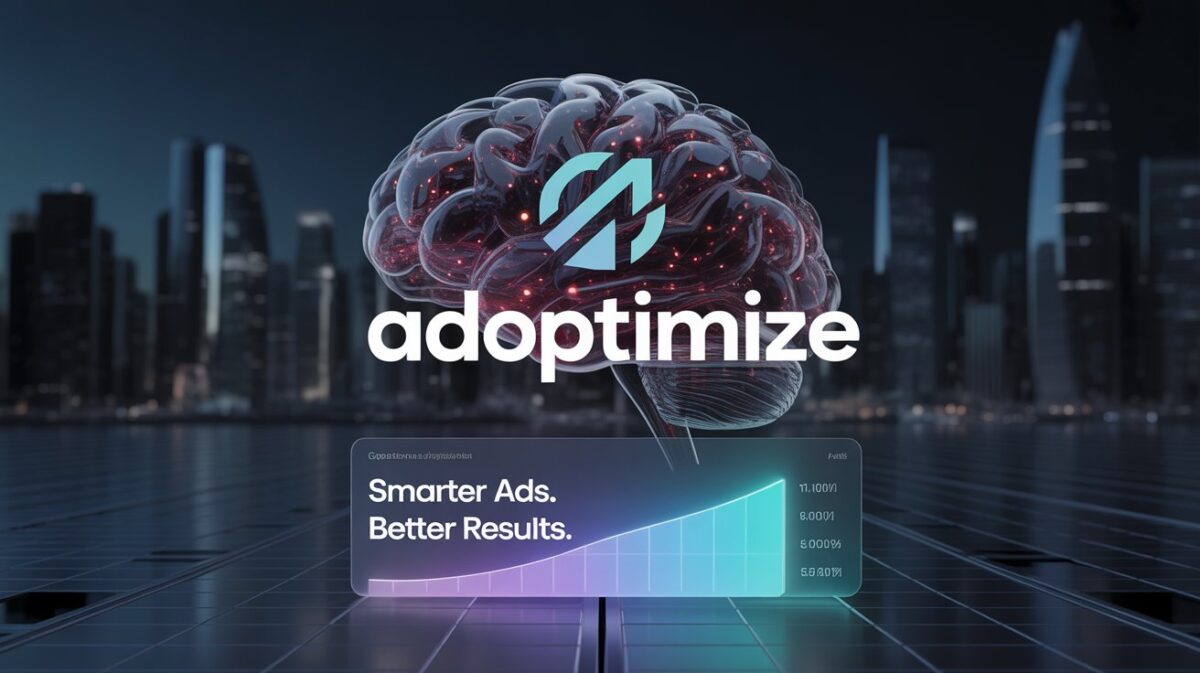The Rise of AI Marketing in Singapore
Singapore’s marketing landscape is transforming faster than ever before, driven by a surge in artificial intelligence adoption. What was once a futuristic concept is now the cornerstone of modern digital strategy — and at the heart of it all lies AI Marketing. Businesses across the island nation, from dynamic startups to established enterprises, are leveraging AI to gain sharper insights, streamline campaigns, and achieve remarkable returns on investment (ROI).
Singapore’s strategic push toward becoming an “AI-first” economy, backed by its Smart Nation initiative, has created fertile ground for innovation. AI tools are now embedded across the marketing funnel — from predicting customer behavior to automating content delivery and optimizing ad spend. For marketing professionals, this isn’t just an opportunity; it’s an evolution that’s reshaping what success looks like.
In an environment defined by data overload and rising customer expectations, AI Marketing offers something priceless — precision. It enables brands to understand, engage, and convert audiences in real time. The companies leading this transformation aren’t merely adopting technology; they’re redefining how human creativity and machine intelligence intersect to create measurable impact.
The question isn’t whether AI Marketing can enhance ROI — it’s how quickly your organization can harness its potential to stay competitive in Singapore’s digital-first economy.

Understanding ROI in the Digital Marketing Era
In the digital age, ROI is more than a metric — it’s the compass guiding every marketing decision. Marketers are under pressure to prove the tangible impact of their campaigns, balancing creativity with performance. But as consumer journeys become increasingly fragmented across channels, traditional marketing methods struggle to deliver accurate ROI insights.
This is where AI Marketing changes the equation. By integrating data from multiple touchpoints — social media, web analytics, email campaigns, and even offline interactions — AI algorithms can track engagement patterns and attribute conversions with pinpoint accuracy. Instead of relying on assumptions, marketers now have real-time visibility into what’s working, what’s not, and where to allocate resources for maximum impact.
Moreover, AI doesn’t just measure performance — it predicts it. Predictive analytics models can forecast campaign outcomes before launch, allowing teams to fine-tune strategies and avoid costly missteps. This proactive approach transforms marketing from reactive guesswork into a data-driven science.
For Singaporean marketers navigating competitive industries like finance, tech, and retail, optimizing ROI through AI Marketing isn’t just smart — it’s essential. The brands that thrive are those who use AI not just to measure return, but to multiply it.

AI-Powered Data Analytics: Unlocking Customer Insights
Data is the new oil, but without the right tools to refine it, its value remains untapped. Enter AI-powered analytics — the engine behind smarter, faster, and more personalized marketing in Singapore.
AI Marketing platforms process vast volumes of consumer data in real time, revealing patterns that human analysts might overlook. These insights help marketers understand customer intent, preferences, and behavior with unprecedented clarity. Whether it’s predicting which product a shopper will buy next or identifying the best time to send a promotional email, AI analytics empowers decision-making grounded in precision.
Singapore’s data-driven ecosystem offers a perfect testing ground for this innovation. With a digitally savvy population and advanced infrastructure, companies can seamlessly integrate AI solutions into their existing marketing stacks. The result? Campaigns that speak directly to individual customers, driving engagement and conversion at scale.
But data analytics isn’t just about prediction — it’s about personalization. By using AI to segment audiences dynamically, brands can craft hyper-relevant messages that resonate with each customer. The insights extracted from AI aren’t static; they evolve as customer behavior changes, ensuring that marketers stay one step ahead in a rapidly shifting market.

Personalization at Scale: Using AI to Enhance Customer Engagement
In a crowded digital world, personalization is no longer optional — it’s expected. Consumers today crave experiences that feel tailor-made for them, and AI Marketing makes that possible at scale.
AI-driven personalization uses machine learning models to analyze user behavior, purchase history, and engagement data. From there, it crafts individual experiences across touchpoints — personalized product recommendations, dynamic website content, and even real-time ad placements. This isn’t just marketing; it’s precision storytelling.
Singaporean brands have been quick to embrace this shift. Retailers use AI to predict shopping trends and offer personalized promotions, while financial institutions deploy chatbots to guide customers through tailored financial advice. The result? Higher engagement rates, increased conversions, and stronger brand loyalty.
The magic lies in the blend of automation and empathy. AI handles the data crunching, while marketers use those insights to design emotionally resonant campaigns. When every message feels relevant and timely, customers are more likely to connect — and that connection translates directly into measurable ROI gains.

Chatbots and Conversational AI: Transforming Customer Interaction
Gone are the days when customers tolerated long response times or clunky support systems. Today’s consumers demand immediacy — and chatbots, powered by conversational AI, deliver exactly that.
In Singapore, chatbots have become an integral part of digital engagement strategies. These AI-driven assistants handle inquiries, process transactions, and provide recommendations 24/7, ensuring seamless customer experiences. But their role extends far beyond basic support — they’re evolving into intelligent sales and engagement tools.
AI Marketing leverages conversational AI to analyze customer sentiment, anticipate needs, and deliver contextually relevant responses. For example, a chatbot on an e-commerce site can identify returning visitors, recall past purchases, and suggest new products — all in real time. This not only enhances customer satisfaction but also drives repeat sales and upsells.
Moreover, as natural language processing (NLP) advances, chatbots are becoming more human-like in tone and adaptability. Singapore’s forward-thinking businesses see this as an opportunity to differentiate themselves through exceptional digital service — a critical factor in boosting ROI and long-term retention.

AI-Driven Advertising: Smarter Ad Targeting and Budget Optimization
Advertising has always been about reaching the right people with the right message — but AI has taken that idea to new heights. Through advanced audience segmentation, predictive bidding, and real-time performance optimization, AI Marketing ensures that every ad dollar works harder.
AI platforms analyze consumer behavior across channels to determine who is most likely to engage or convert. Then, they automatically adjust ad placements, creative variations, and budgets to maximize ROI. In Singapore’s highly competitive advertising market, this precision-driven approach reduces wasted spend and boosts campaign efficiency.
Marketers can now create dynamic ad experiences — ones that change based on user behavior or contextual signals. Imagine an ad that updates its visuals and copy based on time of day, location, or device type. That’s not science fiction; it’s AI-driven reality.
Furthermore, AI empowers marketers with transparency and control. By continuously analyzing performance metrics, it highlights which campaigns yield the greatest returns. This allows brands to allocate budgets intelligently, focusing resources on what truly drives growth.

Challenges and Ethical Considerations in AI Marketing
With great power comes great responsibility — and the rise of AI Marketing brings both immense potential and ethical challenges. Data privacy, transparency, and algorithmic bias remain top concerns for marketers and regulators alike.
Singapore, known for its rigorous data protection standards under the PDPA (Personal Data Protection Act), places strong emphasis on responsible AI use. Businesses must ensure that AI-driven marketing respects user consent and maintains data security. The best AI strategies balance innovation with accountability.
Another concern is algorithmic bias — when AI systems inadvertently reinforce stereotypes or unfair targeting patterns. Ethical AI frameworks are crucial in mitigating these risks, ensuring that automation enhances inclusivity rather than hinders it.
Marketers must also navigate transparency: customers increasingly want to know how their data is being used. Being open about AI-driven personalization fosters trust and long-term loyalty.
Ultimately, responsible AI Marketing isn’t just good ethics — it’s good business. Brands that demonstrate fairness and transparency will stand out in a market that values integrity as much as innovation.
Conclusion: The Future of AI Marketing and ROI Optimization in Singapore
Singapore’s marketing ecosystem stands at a pivotal moment. As AI technologies mature, the line between human creativity and machine intelligence continues to blur — and the outcome is extraordinary. From predictive analytics to hyper-personalized engagement, AI Marketing is not just transforming how brands communicate; it’s redefining how they grow.
The path forward is clear: the companies that embrace AI strategically will dominate the ROI game. By investing in data-driven insights, automation, and ethical AI frameworks, Singaporean businesses can craft marketing strategies that are both intelligent and human.
Innovation in AI Marketing isn’t a distant vision — it’s here, now, shaping a future where every marketing decision is smarter, faster, and more impactful. The next frontier of ROI optimization will belong to those who see AI not as a tool, but as a transformative partner in progress.





